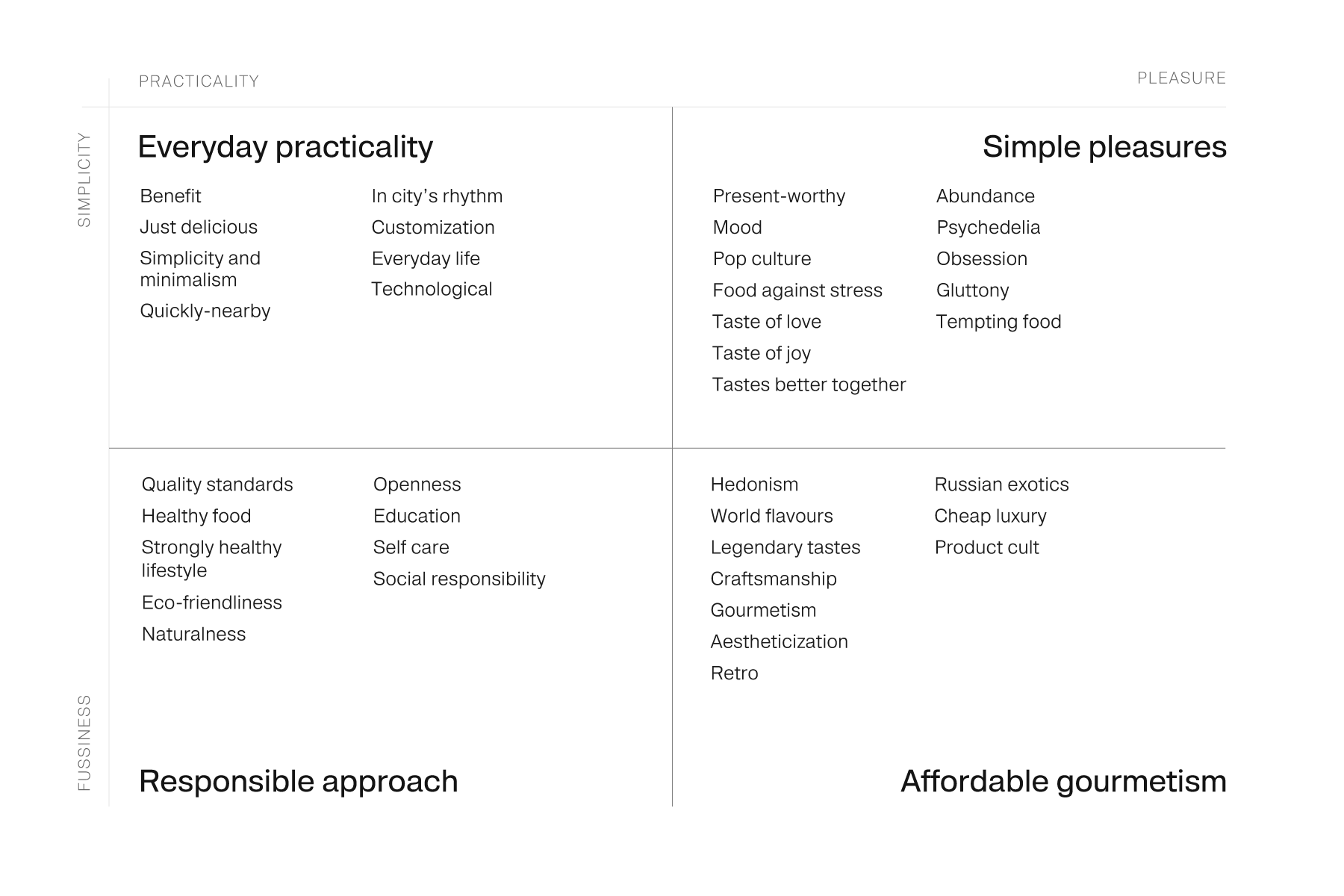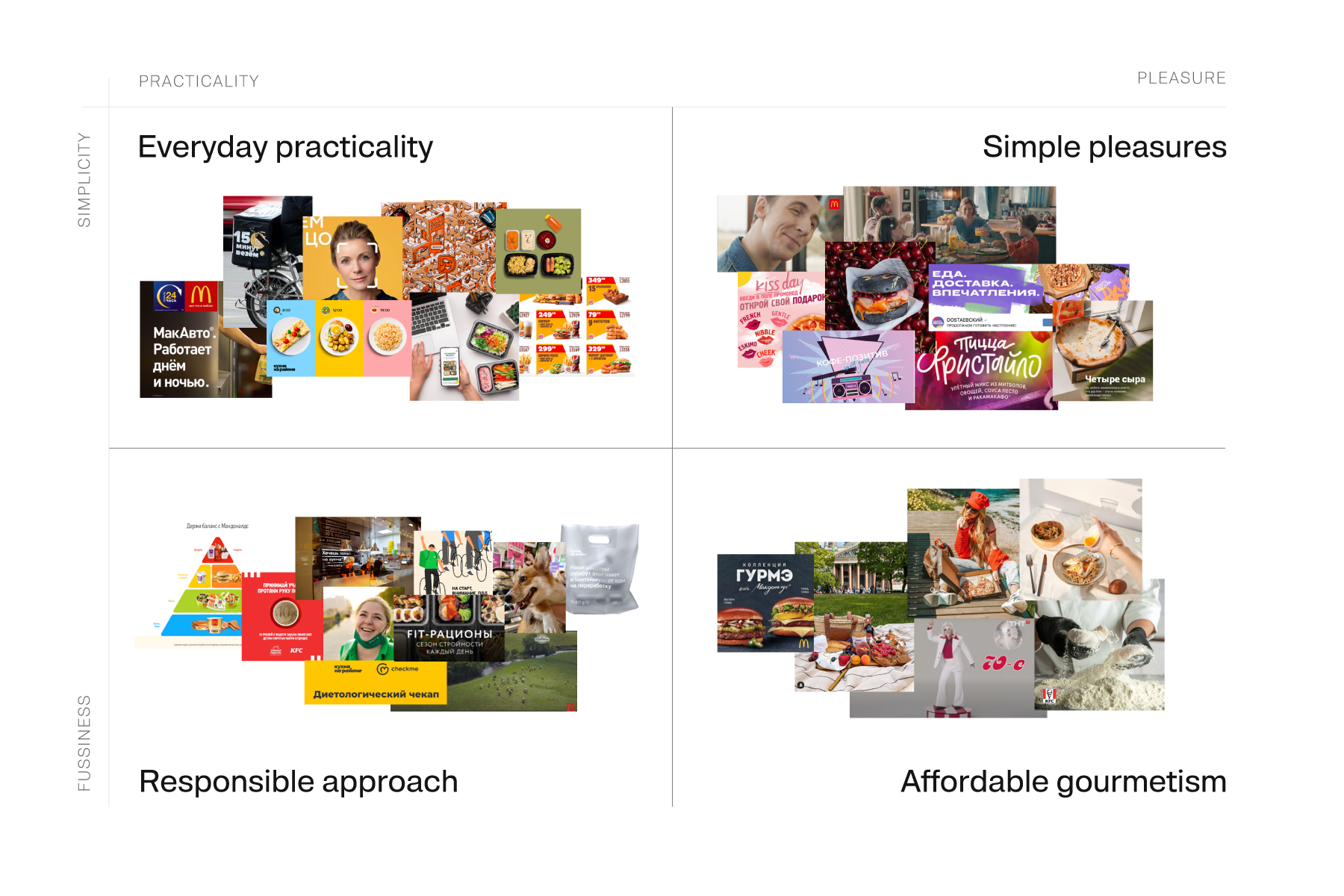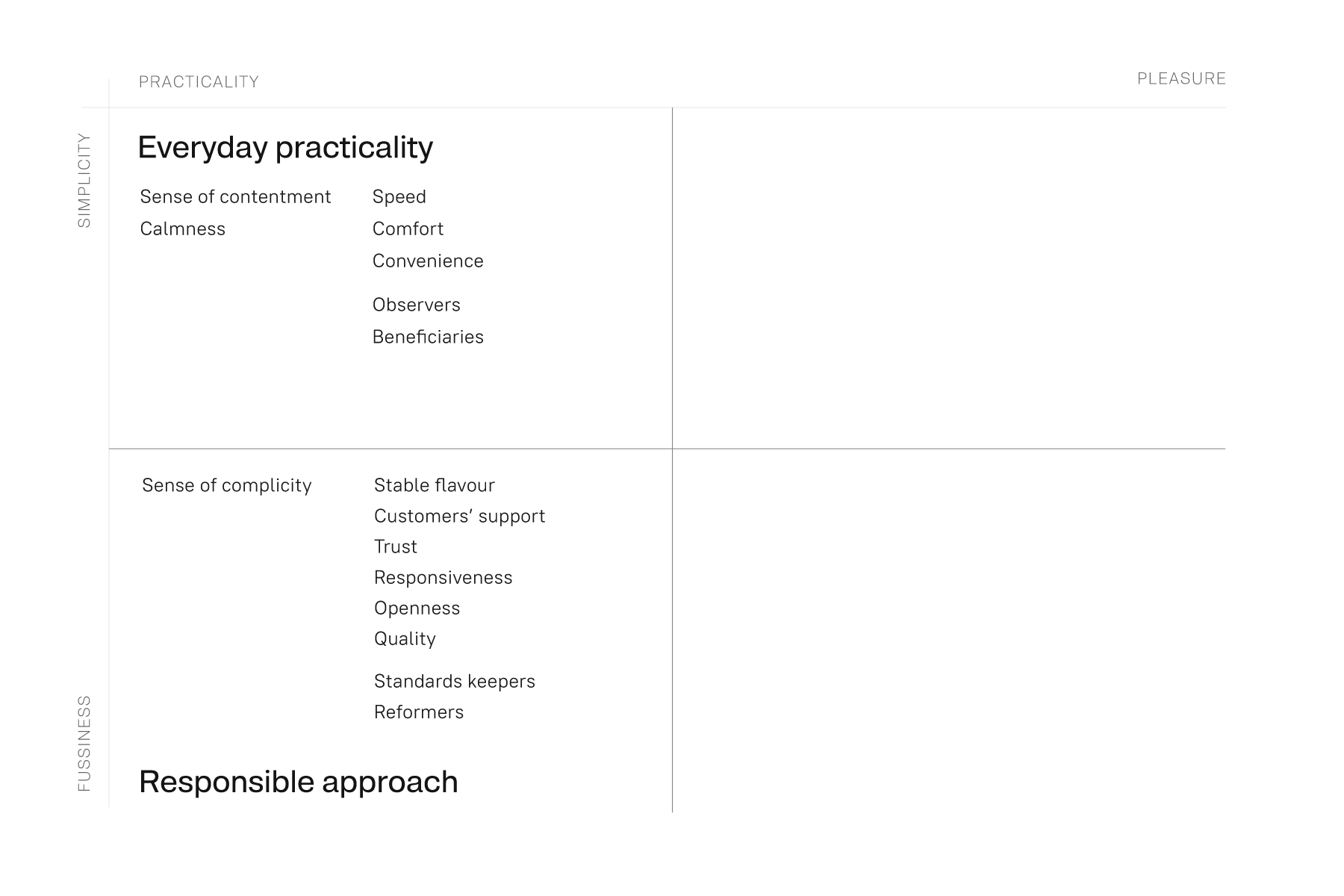Positioning territory
It is critical for communication to mind how Dodo Pizza positions itself among competitors and how we convey our message.
We have an extensive map of meanings to do so, the one that is based on the semiotic research of QSR (quick service restaurant).
These studies do not examine the opinion, preference or perception that the audience demonstrates, rather than focus on what surrounds a person, what affects their perception. We studied everything related to QSR, as well as food delivery services and aggregators, fast casual restaurants and cafes of similar formats. We studied commercials, food layouts, packaging, restaurants interior details, social media, websites and apps.
We obtained the following map:


The key opposition in the QSR category is practicality and pleasure. On the one hand, quick service restaurants are about speed, convenience, accessibility. On the other hand, we see a lot of fun, joy in QSR ads, as well as “guilty pleasure”, craft-ness, sophistication, and restaurant service imitation. There's more rational reasons on the left, more emotional on the right.
The second axis is the depth of approach, conventionally divided into simplicity and fussiness. With increasing fussiness, everyday practicality turns into a responsible approach, while simple pleasures turn into affordable gourmetism.
Our territory is on the left. We're about convenience, responsiveness, and simplicity. Careless fun and gourmet experiences are not our territory.
Everyday practicality and responsibility
Here are the meanings we put into everyday practicality: ordering and receiving convenience, quick preparation and delivery, flavour and quality consistency, responsive customer service.


Responsible approach extends this semantic field: with that we want to be genuine, sincere, honest, mind health, ecology and benefit to society.
Brand character and tone.
Here are our core characteristics.
We're down-to-earth and practical. We want to make your day a little better here and now with our careful approach, responsive service, and your favourite pizza. Wow-emotions and thrills isn’t our thing.
We're laid-back. That doesn't mean we stay away from vivid emotional images. But our emotions are first and foremost a sense of trust, a sense of belonging, a sense of contentment, calmness, comfort and safety, with joy and fun only in the background.
Our check word is “true”. We believe that sincerity is the foundation of trust. We are against fakes and manipulations. We don't cover difficulties, we don't conceal slips, we talk openly with clients and partners, we build communication on real insights, we show real pizza in the frame and initiate stereotype-free talk about people.
We're human-centric. We want to talk about customers, about things that happen in their lives, we want to show our customers in advertising and be inspired by them: their lifestyle, their habits and needs. We want to talk about our employees and their attitude towards the process, the product, the customers. We show pizza and talk a lot about it for sure, but we don't make a cult out of it.
Human-centric rather than pizza-centric
There’s a certain approach to communication in the QSR. It’s when the product is put in first place, as if on a pedestal: endless praise, worship and showing how everyone is crazy about it. This is not our way. Customers love us not just for the pizza, but for the entire pizza experience. Our superpower is responsive service and in this regard, it makes sense that the center of our communication would be the customer, not the product.
Human-centric approach can manifest itself through various different ways - first of all through visual images in brand communication, when we show customers and employees, situations from customers' lives, and how we get inspired by them. A simple text, accurate words that address customers' experiences or lifestyles also work well. Human-centeredness can be shown without words at all, just by creating a convenient product and a cool pizza experience.
Here are a couple of examples of human-centric approach.
Commercial
Human- centric
To tell the customer's story, to show how Dodo fits into a person's life.
Focus on the relationship: human - world - Dodo.
Pizza-centric
Sing a song about flavour, praise the taste of the product, make the product an object of desire, equate food with emotion.
Focus on the relationship: human - pizza.
Example: commercial “This is Dodo, this is taste, colour, crunch”.
Social media
Human- centric
In addition to the product and promotions to show customers, employees, talk about what is interesting, useful and important to customers.
Pizza-centric
Only talk about products, ingredients, and special offers.
Product Layout. The purpose of the product layout is to show the product, so it will be pizza-centric, it's okay.

